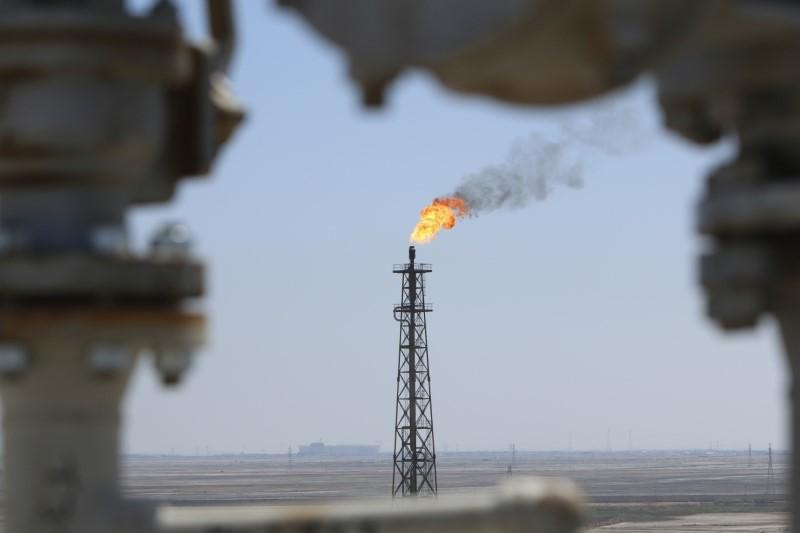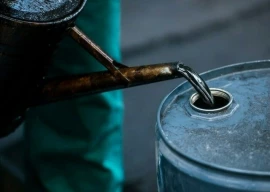
Once again an oil crisis is looming in the country due to low uplift of furnace oil by oil marketing companies (OMCs), which has forced refineries to cut production.
This can also impact the local production of gas and crude oil in the country. If the refineries cut production further, they will have to reduce uplift of crude oil from producers like the Oil and Gas Development Company (OGDC) and Pakistan Petroleum Limited (PPL). In such a situation, they will have to reduce production - a situation that has already happened once in the country.
Now, refineries have again started facing the problem of furnace oil piling up and that has led to lowering production, a move that may lead to another oil crisis in the country.
Sources told The Express Tribune that OMCs are not lifting furnace oil from the refineries. Therefore, refineries especially Pak Arab Refinery Limited (Parco) and Attock refinery Limited (ARL) have cut their production due to piling up of furnace oil stocks.
OMCs are not lifting furnace oil due to low demand of power sector.
This crisis started in the country after import of liquefied natural gas (LNG), which is an alternate fuel of furnace oil in the power sector.
There are two LNG terminals operating in the country. Most of the power sector’s demand for fuel is met through LNG hence, it is unwilling to consume furnace oil.Moreover, refineries have not upgraded their operations despite availing incentives on account of deemed duty. Now, after start of LNG in 2015, they are continuously facing the problem of utilising furnace oil.
Refineries across the world have set up conversion plants to convert furnace oil into petrol and high speed diesel. But the refineries in Pakistan have not set up these plants and are still waiting for incentives in the new refinery policy 2021.
However, Byco has started work on setting up a furnace oil conversion plant. It will complete the plant in 2024 that would enable the refinery to increase production of petrol and high speed diesel.
The government had earlier allowed refineries to export furnace oil. However, there is no demand for furnace oil in the world and refineries were unable to export this product.
Now, refineries have taken up this matter with the Petroleum Division. They have informed that low uplift of furnace oil by OMCs has led to piling up of stocks and if the situation persists they would have to cut production further.
Officials said that the consumption of furnace oil by power plants/K-Electric was very low against the demand Power Division had placed before the Petroleum Division for power sector. In April, the Power Division had placed a huge demand of HSFO and LSFO for the period of April to October 2021, which was more than 2.7 million metric tons.
Moreover, the Power Division had pointed out that furnace oil would not be used for power generation. It had said that this furnace oil would be used to build stocks in case of emergencies during the summer season when the normal demand for electricity increases manifold compared to the demand in winter season.
The Petroleum Division had asked the Power Division to give a realistic and firm power plant-wise demand of furnace oil to enable the OMCs to arrange supplies accordingly. However, the Power Division had not shared any firm demand later.
Presently, refineries are facing severe ullage issues compelling them to reduce refinery throughput, which may impact the supply chain of petroleum products in the country. The Petroleum Division is regularly following up with the Power Division.
Published in The Express Tribune, May 30th, 2021.
Like Business on Facebook, follow @TribuneBiz on Twitter to stay informed and join in the conversation.








































COMMENTS
Comments are moderated and generally will be posted if they are on-topic and not abusive.
For more information, please see our Comments FAQ